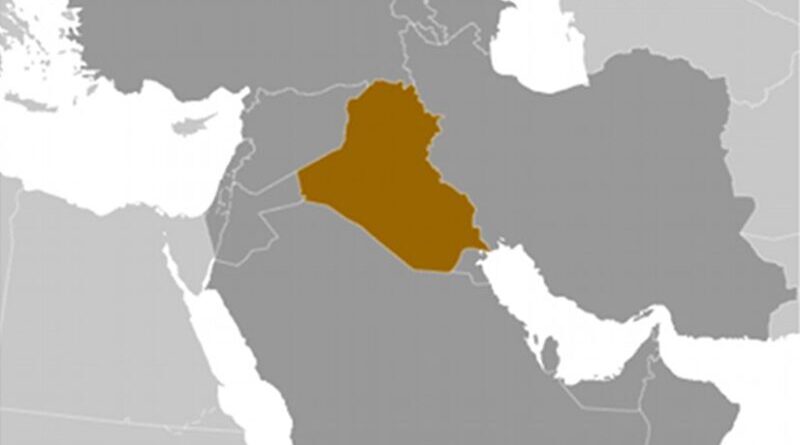Biden’s Iraq Visit More Flash Than Substance, Say Critics – OpEd
By Jim Kouri
With U.S. military forces withdrawing from Iraq on schedule, Vice President Joe Biden visited the fledgling Democracy to tell the world that the United States and Iraq are beginning a new phase of a partnership that reflects Iraq’s needs and includes a robust security relationship.
Biden arrived in Baghdad late on Tuesday on a surprise visit with the aim of meeting with top Iraqi officials to discuss the U. S. troop withdrawal and relations between the two countries after the pullout of U.S. forces by the end of this year.
Unfortunately, the statements made by Biden and Iraqi officials appeared more flash and less substance, according to several counterterrorism sources.
Despite the Obama Administration’s “rose-colored glasses” assessment of Iraq’s future as a democratic haven in a sea of radical Islamist despots, political thugs and monarchs, Iraq appears open to befriending its neighbor Iran as was demonstrated in mid-November.
BIDEN AND AL-MALIKI MEET
Biden and Iraq Prime Minister Nouri al-Maliki delivered remarks before and after Wednesday’s meeting of the U.S.-Iraq Higher Coordinating Committee, which issued a joint statement on the nations’ historic opportunity to build a relationship through security, trade, education and culture, law enforcement, environment and energy, according to Cheryl Pellerin of the American Forces Press Service.
The committee is part of the Strategic Framework Agreement, signed during the Bush Administration in 2008 to affirm both nations’ desire to establish long-term bonds of cooperation and friendship.
“We are embarking on a new path together, a new phase in this relationship,” Biden said. “That partnership includes a robust security relationship based on what you decide — what you decide — you think that relationship should be.”
The vice president added, “We will continue our discussions with your government over the substance of our security arrangements, including areas of training, intelligence and counterterrorism.”
The U.S. delegation included Army Gen. Lloyd J. Austin III, commanding general of U.S. Forces Iraq; Antony J. Blinken, Biden’s advisor for national security policy; Jeffrey D. Feltman, assistant secretary of state for near eastern affairs; and Deputy Energy Secretary Daniel Poneman.
“We’re going to start a new phase of friendship,” al-Maliki said after the meeting.
IRAQI AND IRANIAN MILITARY OFFICIALS MEET
However, several experts on Iraqi security and counterterrorism believe Biden’s visit was more of a dog and pony show to quell suspicions that all is not well for Iraq’s future as a democracy.
As was predicted by several former military, intelligence and law enforcement commanders, the Iraqi military and their Iranian counterparts are already meeting in anticipation of the December withdrawal of all U.S. forces in an effort to thwart Iraq’s internal enemies, as was reported by the Law Enforcement Examiner on November 15.
General Babaker Zebari Chief of Staff of the Iraqi Joint Forces, during his visit to Iran, has called for the military cooperation between Tehran and Baghdad, Iran’s government-controlled news service reported.
Meanwhile, during a Veterans Day presentation at Arlington National Cemetery in Washington D. C., President Barack Obama mentioned the U.S. military’s accomplishments in Iraq, Afghanistan and Libya. But he stopped short of discussing the problems the U.S. faces with a renegade Iran and the fact that once U.S. troops leave Iraq at the end of 2011, that nation is ripe for Iranian interference.
A former U.S. police advisor now living in Israel wonders if the Iraq War will be remembered as a success or the beginning of yet another radical Islamic nation.
“We sacrificed a lot of blood and treasure liberating that country. To have it fall into the hands of [Iranian] madmen would be a crime against all those who lost their lives and limbs fighting for Iraqi freedom and U.S. national security. It seems Americans are fickle when it comes to war and the bad guys know that,” said the former U.S. police supervisor.
Gen. Zebari, following his arrival in the Iranian capital of Tehran while heading a delegation of senior Iraqi military officials, met with the leader of the Islamic Revolution Guards Corps (IRGC) Ground Forces, Brigadier General Mohammad Pakpour.
The Iraqi general told his Iranian counterpart that Iraq continues to endure security threats from elements such as al-Qaeda in Iraq, radical clergy al-Sadr’s followers, etc., and Baghdad needs the help of a powerful country such as Iran, especially in the area of national security.
“[This] visit aims to develop bilateral relations, since Iran and Iraq are two friendly neighboring countries, which should have very close relations … The Islamic Republic of Iran is a capable country in many areas,” General Zebari was quoted as saying by the IRNS.
IRGC’s General Pakpour welcomed the idea and promised that Iranian government and military forces will make every effort to help the Iraqis build a secure and safe country. Pakpour said that the withdrawal of foreign forces provides an opportunity for the Iraqis to begin running their own affairs, according to the report.
But U.S. intelligence analysts believe Iran’s ultimate goal is the takeover of the fledgling democracy, and replacing Iraq’s duly elected government and its constitution with an Islamist regime and Sharia law.

